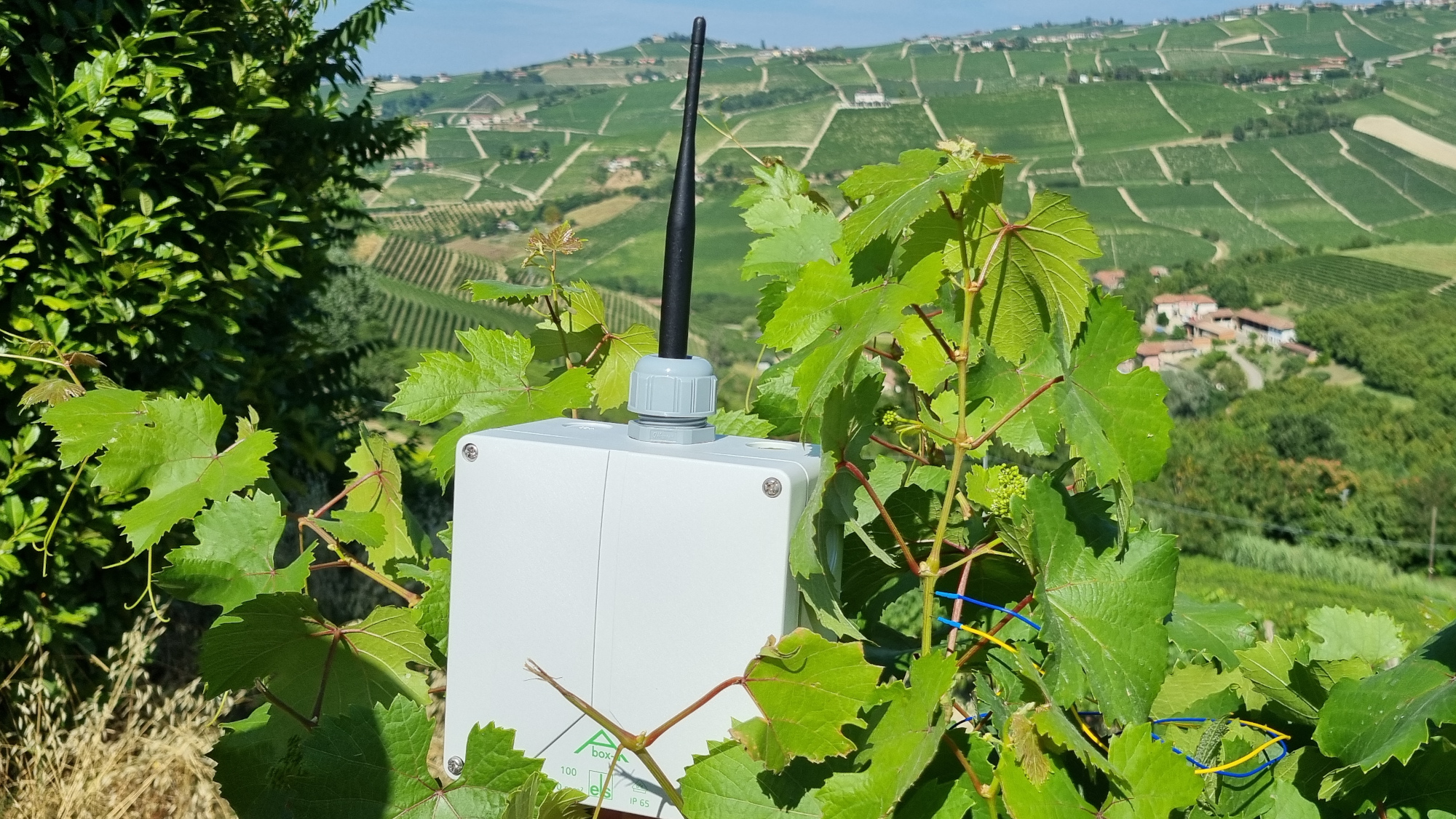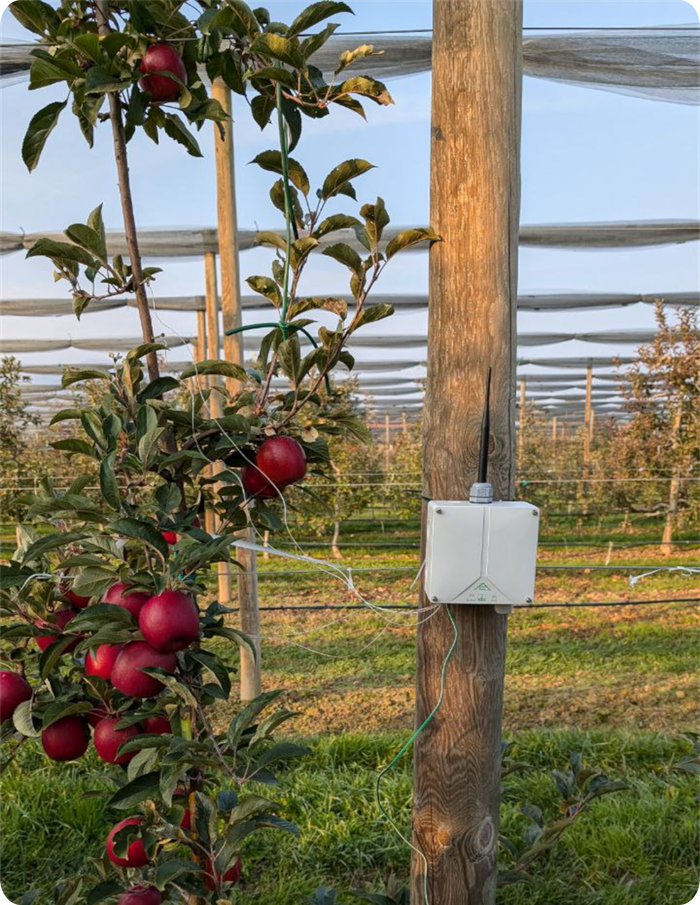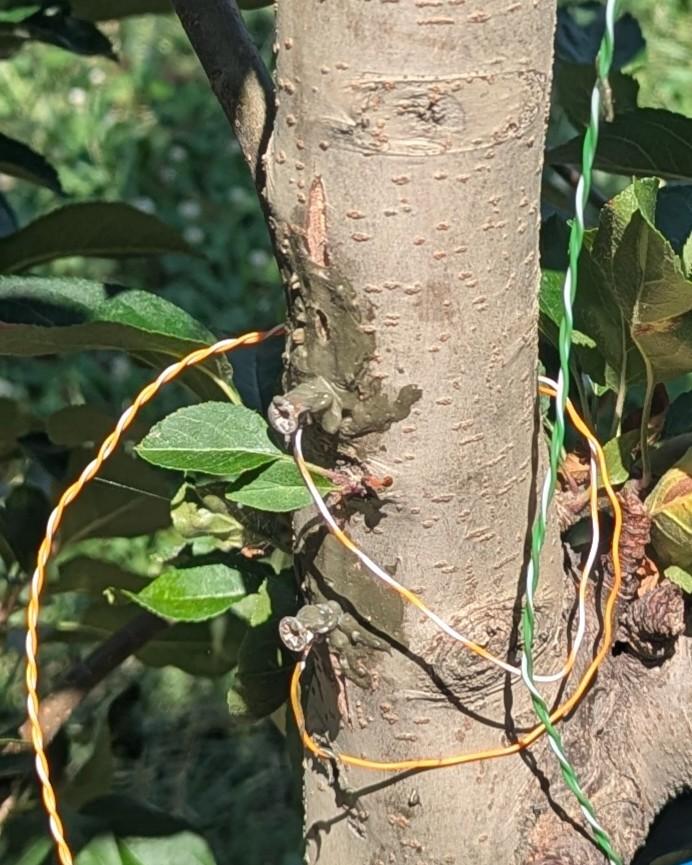
An ECG for Plants to Detect Their Health Status

A “wearable” sensor for plants, capable of capturing signals that indicate their health status through a sort of vegetal electrocardiogram, has been developed by PlantZCare, a spin-off of Politecnico di Torino founded in February 2025. With this innovative device, the company aims to make a major contribution to agricultural innovation and the environmental sustainability of agricultural activities. The PlantZCare product will be available on the market by the end of 2025.
“Our work started from a simple observation: the human body and plants share some similarities, such as an internal vascular system for fluid transport. We therefore thought that methods based on electrical bio-impedance, commonly used to provide useful insights into human health, could also be applied to monitor plant health”, explains Luca Rolle, co-founder and CEO of PlantZCare.
This hypothesis was later validated in the field with the development of a sensor capable of detecting electrical bio-impedance inside plant stems (both woody and herbaceous). The device demonstrated a clear correlation between bio-impedance patterns and plant health, producing a trace similar to an ECG that reflects two key conditions: the presence of water and pathogens.
The device is described as “wearable” because it can be easily applied to plant stems using a series of needles that measure electrical bio-impedance – a signal that varies depending on the plant’s internal state. The sensor then transmits the data, even over long distances and with very low energy consumption, to a central unit that processes them into a trace resembling an ECG.
“We tested our sensor with the support of the Department of Agricultural, Forest and Food Sciences at Università di Torino – says Rolle – We carried out trials on fruit trees, such as grapevines, kiwifruit, and tomatoes, both in open fields and in greenhouses, always with positive results”.

Danilo Demarchi, Professor at the Department of Electronics and Telecommunications-DET, co-founder and scientific advisor of PlantZCare, adds: “Before creating the spin-off, we worked for three years on the regional project WAPPFRUIT – Smart technologies applied to water management in fruit growing, funded by the EAFRD – European Agricultural Fund for Rural Development. The project focused on irrigation control based on signals of the water status of apple and kiwifruit plants. Comparing areas monitored with our method against those using traditional techniques showed a 40% reduction in water use, with essentially the same yields”.
PlantZCare – also co-founded by Umberto Garlando and Alessandro Sanginario – emphasises that their method detects the overall health status of plants and identifies early warning signals compared to traditional approaches. The signal can distinguish between water stress and the onset of disease. Early detection of anomalies allows for targeted in-field checks, if necessary, but above all, it enables significant savings in water and agrochemicals, lower production costs, and improved productivity.
According to current estimates, a single sensor can simultaneously monitor four plants, including soft-stemmed and horticultural crops. Full-scale industrial engineering of the device is expected by the end of 2025, and research is ongoing to enable the specific identification of individual plant diseases.
The potential beneficiaries of PlantZCare’s technology are not only farmers but also public institutions, which could use it to monitor urban green areas and parks.